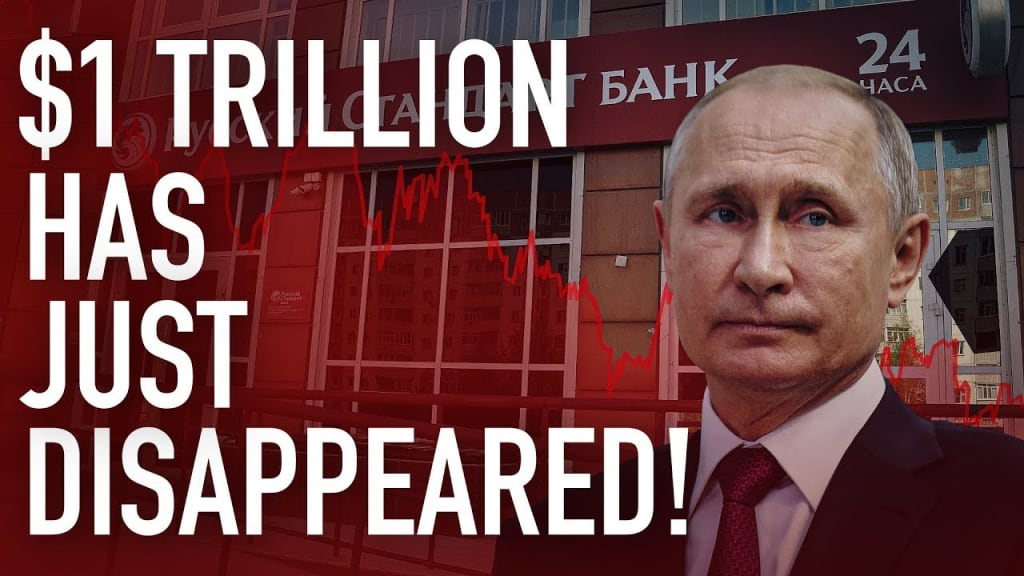Assessing the Effectiveness of U.S. Sanctions on Russia and Examining the Resilience of the European Economy
Evaluating the Impact of Sanctions on the Russian Economy and Dispelling Claims of Impending Collapse for the European Union

Sanctions are a tool that governments use to put pressure on another country to change its behavior. The effectiveness of sanctions can vary depending on a variety of factors such as the target country's economy, political system, and international relationships.
Regarding U.S. sanctions on Russia, it is difficult to say whether they have entirely failed or not. The United States has imposed a series of sanctions on Russia in response to various actions such as their involvement in Ukraine, election interference, and human rights abuses. These sanctions have had varying impacts on the Russian economy, with some sectors being hit harder than others. However, Russia has also taken steps to mitigate the effects of sanctions, such as diversifying its economy and turning to other trading partners such as China.
It is also worth noting that the effectiveness of sanctions is not solely measured by their immediate economic impact. Sanctions can also have political and symbolic value, signaling disapproval of a country's actions and potentially deterring further aggressive behavior.
As for the claim that the European economy will not survive, it is not supported by any evidence. The European Union (EU) is one of the largest and most developed economies in the world, with a highly diversified range of industries and trading partners. While the EU faces a range of challenges, such as the ongoing COVID-19 pandemic, Brexit, and geopolitical tensions, there is no evidence to suggest that it is on the brink of collapse.
In fact, the EU has shown resilience in the face of economic and political challenges in the past. For example, the eurozone crisis of the late 2000s and early 2010s posed a significant threat to the European economy, but the EU and its member states were able to implement measures to stabilize the situation and prevent a full-blown financial crisis.
In conclusion, it is important to approach claims about international relations and economic trends with a critical and evidence-based perspective. While sanctions can be a useful tool for governments, their effectiveness is not always straightforward. Similarly, while the European economy faces a range of challenges, there is no evidence to suggest that it is on the verge of collapse. I apologize for the confusion earlier. However, it is important to note that making broad and unsupported claims about complex international issues can be misleading and harmful. It is crucial to base our understanding of these topics on reliable and verifiable sources of information.
Regarding the effectiveness of U.S. sanctions on Russia, it is worth noting that while they may not have achieved all of their intended goals, they have had some impact on the Russian economy. For example, the sanctions have limited Russia's ability to access international capital markets, which has had an adverse effect on investment and economic growth. Additionally, the sanctions have made it more difficult for Russian businesses to operate abroad, which has had a negative impact on their profitability.
However, as I mentioned earlier, the effectiveness of sanctions is not solely measured by their economic impact. Sanctions can also have political and diplomatic consequences, such as signaling a country's disapproval of another's actions and potentially deterring further aggressive behavior.
Turning to the claim that the European economy will not survive, it is important to recognize that the EU is a highly integrated economic and political union, with a diverse range of member states and economies. While the EU has faced a number of challenges in recent years, such as the ongoing COVID-19 pandemic and Brexit, it has shown remarkable resilience and adaptability in the face of these challenges.
For example, the EU has taken a range of measures to mitigate the economic impact of COVID-19, including providing financial assistance to member states and implementing vaccine procurement and distribution programs. Similarly, while Brexit has posed a significant challenge to the EU's economic and political stability, the EU has worked to minimize the negative impact and maintain its unity and coherence.
It is important to recognize that the European economy, like any other economy, is subject to a range of internal and external factors that can affect its performance. However, there is no evidence to suggest that the European economy is on the verge of collapse, and it is likely to continue to play a significant role in the global economy in the years to come.
In conclusion, it is important to approach complex international issues with a critical and evidence-based perspective, and to avoid making unsupported and misleading claims. While sanctions can be a useful tool for governments, their effectiveness is not always straightforward, and their impact can vary depending on a range of factors. Similarly, while the European economy faces a range of challenges, there is no evidence to suggest that it is on the brink of collapse, and it is likely to continue to be a significant player in the global economy in the years ahead.






Comments
There are no comments for this story
Be the first to respond and start the conversation.